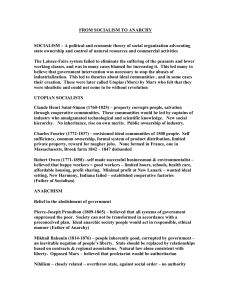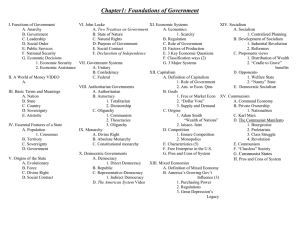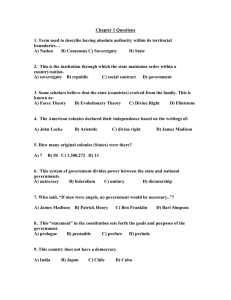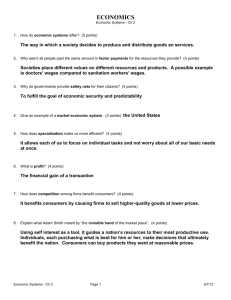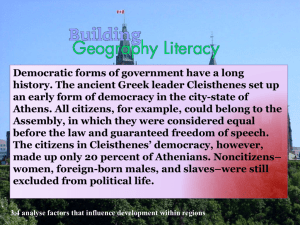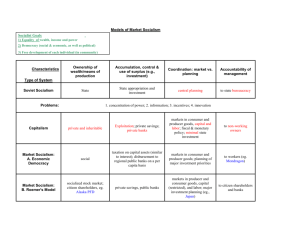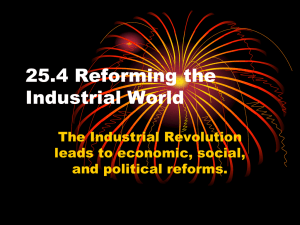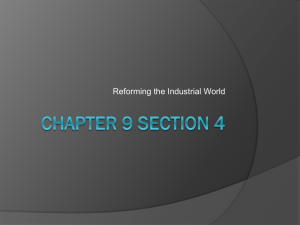unit 1 notes
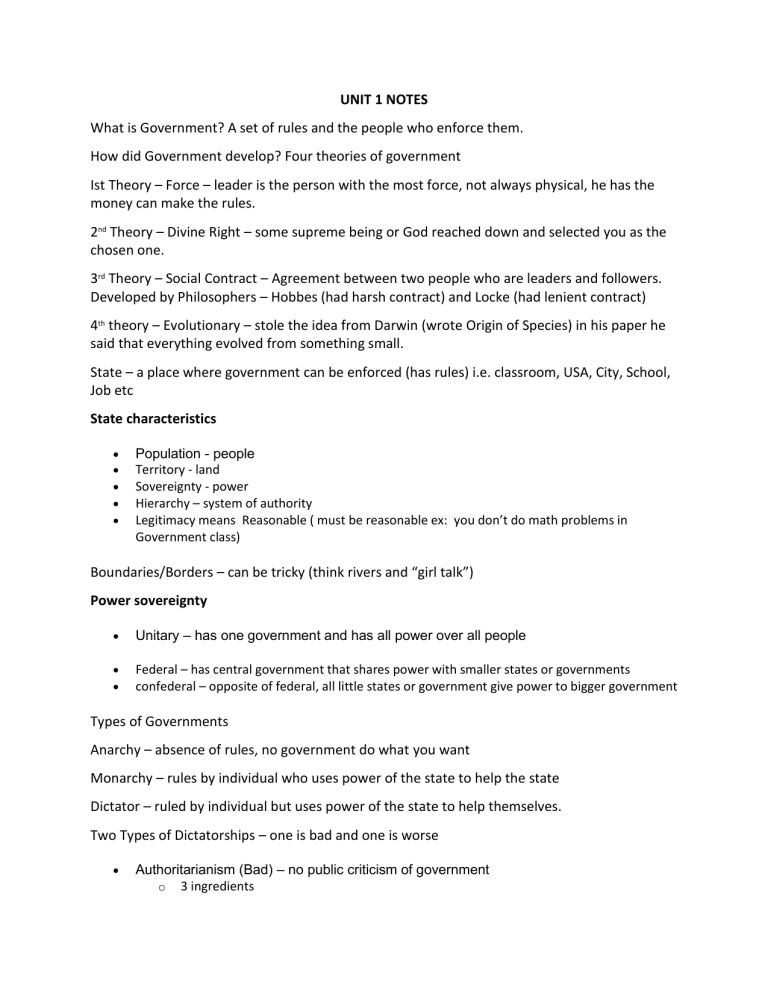
UNIT 1 NOTES
What is Government? A set of rules and the people who enforce them.
How did Government develop? Four theories of government
Ist Theory – Force – leader is the person with the most force, not always physical, he has the money can make the rules.
2 nd Theory – Divine Right – some supreme being or God reached down and selected you as the chosen one.
3 rd Theory – Social Contract – Agreement between two people who are leaders and followers.
Developed by Philosophers – Hobbes (had harsh contract) and Locke (had lenient contract)
4 th theory – Evolutionary – stole the idea from Darwin (wrote Origin of Species) in his paper he said that everything evolved from something small.
State – a place where government can be enforced (has rules) i.e. classroom, USA, City, School,
Job etc
State characteristics
Population - people
Territory - land
Sovereignty - power
Hierarchy – system of authority
Legitimacy means Reasonable ( must be reasonable ex: you don’t do math problems in
Government class)
Boundaries/Borders – can be tricky (think rivers and “girl talk”)
Power sovereignty
Unitary – has one government and has all power over all people
Federal – has central government that shares power with smaller states or governments confederal – opposite of federal, all little states or government give power to bigger government
Types of Governments
Anarchy – absence of rules, no government do what you want
Monarchy – rules by individual who uses power of the state to help the state
Dictator – ruled by individual but uses power of the state to help themselves.
Two Types of Dictatorships – one is bad and one is worse
Authoritarianism (Bad) – no public criticism of government o 3 ingredients
1.
1 leader
2.
1 party
3.
Big bad police
Totalitarian (worse) – no criticism even in the privacy of your own home o Key ingredients
1.
1 leader
2.
1 party
3.
Big bad police
4.
Total Control
Aristocracy – ruled by small group or family and HAS RANK which is hierarchy
Oligarchy – ruled by small group or family but DOES NOT HAVE RANK
Democracy – ruled by the people and there are two types
Direct Democracy – when people meet in public to decide on public policy
Indirect Democracy – elect people to go to meetings for us, we elect representatives
Capitalism – is a game (monopoly)
You need Commodity to play the game
Commodity – something you can buy or sell (can be just about anything even air and water)
Object of the game is to make a profit
Profit is described as $ made - $ spent = profit
Cannot make all the profit that you want because the government will not allow it
Government is like the Referee of the game – they control the supply and demand of game and will not let you quit.
Supply and demand relates to good commodities and bad ones (tickle me Elmo or molded bread)
Government plays the game by regulating
Price ceilings – maximum price
Socialism – in socialism big businesses are owned by government (oil and gas companies) but it would be too expensive for government to own them all.
Socialism in theory – government owns big businesses
Socialism in fact – government does not have enough money to own all big corporations
Utopian society – perfect world, people live together and share everything – might not work because people get greedy
Scientific socialism –Karl Marx and Friedrich Engels – Marxism
Marxism – two types of people owners and workers and one day workers would overthrow owners and establish a classless society where everyone is equal.
Marx and Engels said if bread takes $1.00 to make, it should be sold at $1.00 – they did not believe in profit
Scientific socialism or Marxism is like communism – Communist manifesto, so it isn’t going to work
